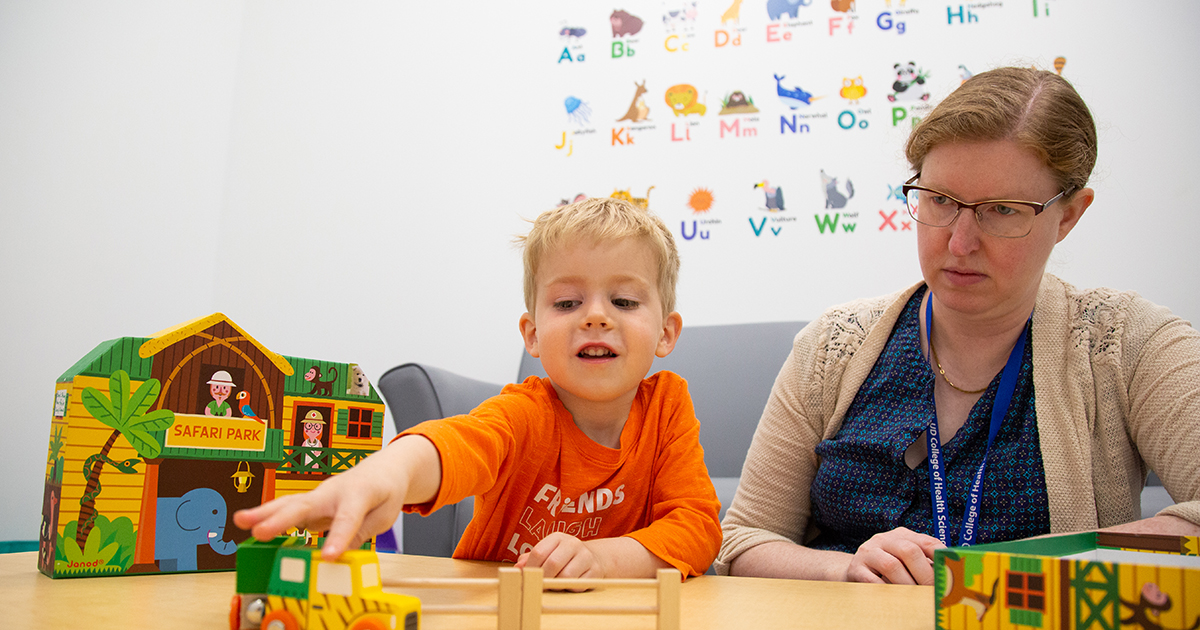
Category: Communication Sciences & Disorders

Helping bilingual children
October 19, 2023 Written by Amy Cherry | Photo by Ashley Barnas
UD awarded $3M+ grant to test intervention on bilingual children with developmental language disorder
Amanda Owen Van Horne sits on the floor while a child mixes up cake batter in a play kitchen.
While at play, an intensive language therapy program is also underway for preschool-aged children with developmental language disorder (DLD) at the University of Delaware’s Treatment Efficacy and Learning Language (TELL) Lab. The child says, “Him cooking.” Owen Van Horne repeats back, “He is cooking.”
DLD is a problem with learning and using language not attributed to a hearing impairment or intellectual disability, according to DLD and Me, an organization that aims to raise awareness of DLD on which Owen Van Horne serves on the board. One of the hallmark signs of DLD is an inability to speak in complete grammatical sentences.
“DLD is not just a problem with how you pronounce words; the disorder interferes with understanding and using language,” Owen Van Horne said. “So, we try to reuse what the child already said because it tells us they know the word; they’re interested in the topic, and if we reuse those sentences and turn them into longer, more complex and grammatically correct sentences, the child also has the cognitive resources to realize what I said, and whether I added ‘is’ to form the complete sentence.”
Owen Van Horne, professor of communication sciences and disorders at UD’s College of Health Sciences, and her colleague, Anny Castilla-Earls, professor of communication sciences and disorders at the University of Houston, are testing recast therapy as a language intervention for bilingual children with DLD for the first time. Together, they seek to learn whether the language of instruction impacts syntax learning.
Owen Van Horne and Castilla-Earls have been awarded a five-year $3.27 million grant from the National Institute on Deafness and Other Communication Disorders to further define the relationship between a child’s language proficiency in English or Spanish and the language of instruction to determine whether that impacts learning.
A pilot study launched during the COVID-19 pandemic involving 11 students with DLD from Texas yielded promising results. It was published over the summer in the Journal of Speech, Language, and Hearing Research.
“When we taught in one language, most kids benefitted in the other language,” Owen Van Horne said. “That’s not what we expected to find, and we’re pretty excited to build on that conclusion.”
